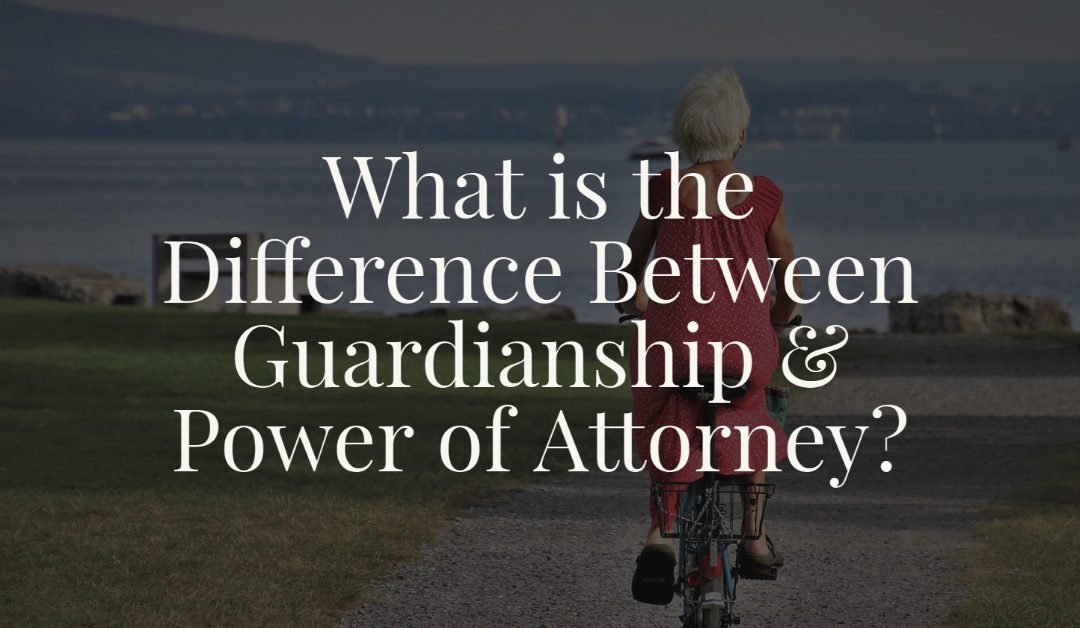As you grow older, you may eventually need a caregiver. It is difficult to accept this truth, but living in denial that your health could fail is not wise. Our culture in the United States often values autonomy, independence, and doing it yourself. However, if a medical event forces you into incapacity and you need a caregiver, wouldn’t you like to decide who that person will be? The essential difference between guardianship and power of attorney is one of choice.
With a power of attorney, you work with your attorney before you need help to choose your caregiver and make a plan. With guardianship, a court order by a judge determines your future care choices. If a health event forces you to depend on others and you don’t have a plan, you could end up the subject of a court battle over your future.
Filing a Guardianship Petition
In a guardianship case, a loved one generally files a petition to appoint a guardian for you. Perhaps you left the stove on one too many times, or you no longer recognize your spouse. Or it could be that you had a stroke and can no longer move one side of your body. Health events and general mental deterioration can bring your family to a place of desperation. At that point, they file a guardianship petition to protect and care for you.
However, there are sometimes family members who want control of your estate or your life in general. In these cases, claims of your frailty or incompetence could be false. Hiring an attorney to fight the battle for your independence can help make your case before the judge.
Guardianship Cases Play Out In Court
After a family member files a petition, your family may argue in court about who should take care of you as you age. Often, a family can disagree about who should be your guardian. You may also disagree with your loved ones or the judge.
Part of a guardianship proceeding is the admittance of evidence for and against your ability to care for yourself. If your family is trying to prove your incompetence, they call your sanity into question. If you are physically disabled, they call your ability to care for your most basic daily needs into question. This process of looking into the details of your life can be exhausting and even embarrassing to go through.
What is a Guardian Ad Litem?
The court often asks a guardian ad litem to represent your best interests. The guardian ad litem is usually an attorney who has extensive experience working with guardianship cases and investigating the facts. This attorney makes a recommendation to the judge about what should happen next.
Working Together
In a best-case guardianship drama, the guardian ad litem and all interested family members work together ahead of time and try to agree on the best arrangement for you. Working together can help everyone avoid lengthy contested inquiries by the court into the personal lives of the proposed guardians.
Contested Guardianship
If you or another family member disagree with the general consensus, you may contest the guardianship. Challenging the guardianship proceedings can cause the courtroom saga to last several days. The clerk of court will take time to consider all the evidence and make findings of fact. These findings determine if you can manage your own affairs. At this point, the clerk may dismiss the case or decide that you are incompetent or incapacitated and in need of a guardian.
Types of Guardianships in North Carolina
There are different types of guardians, including:
- Guardian of the Person: for personal care decisions such as hiring a caregiver, taking you to doctor appointments, tending to your daily needs
- Guardian of the Estate: for financial decisions of your estate only. Includes deciding how much to pay a caregiver, managing your investments and real estate
- General guardian: care over both – personal care and financial decisions
- Limited Guardianships: the judge may rule that you only need help to make dinner and get to bed each evening for now
No Court-Ordered Regulations
With a durable general power of attorney, you decide what your future holds. There are no courtroom battles over who should care for you. There are no court-ordered inquiries into your future care or financial bottom line. Your caregiver is not overburdened with making reports about you to the court. Instead, they can concentrate on making the best life for you.
Make A Plan
To avoid the drama of standing before a judge to plead your case, you must make a plan now. Working with an attorney to file a durable general power of attorney can give you the ability to choose who will care for you in the future. Talking with your family and friends ahead of time and making a plan with your future care person takes the element of chance out so that everyone knows your wishes.
It is difficult to think about a time when you may need constant care, but hiding from the possibility just makes it all more difficult for everyone.
We Can Help
At Hopler, Wilms, and Hanna, we work with the court to bring about the best-case scenario in each guardianship case we take on. Our experience as guardianship attorneys gives you up-to-date legal knowledge and needed resolution to your legal issues. Contact us today and find out how we can help you.

